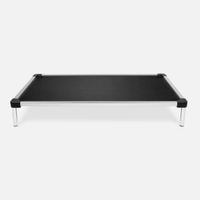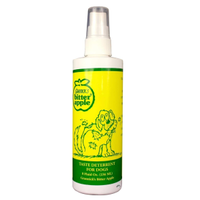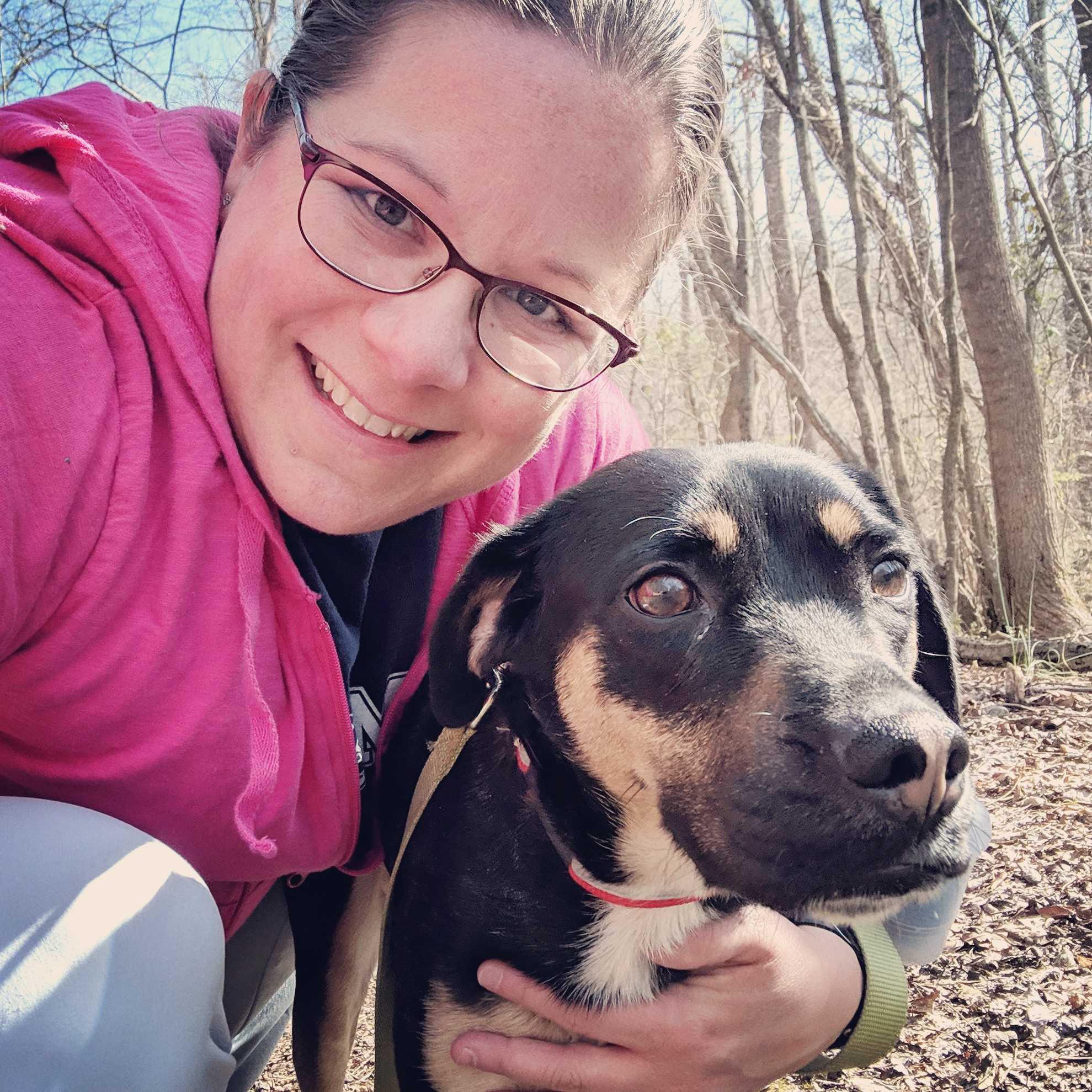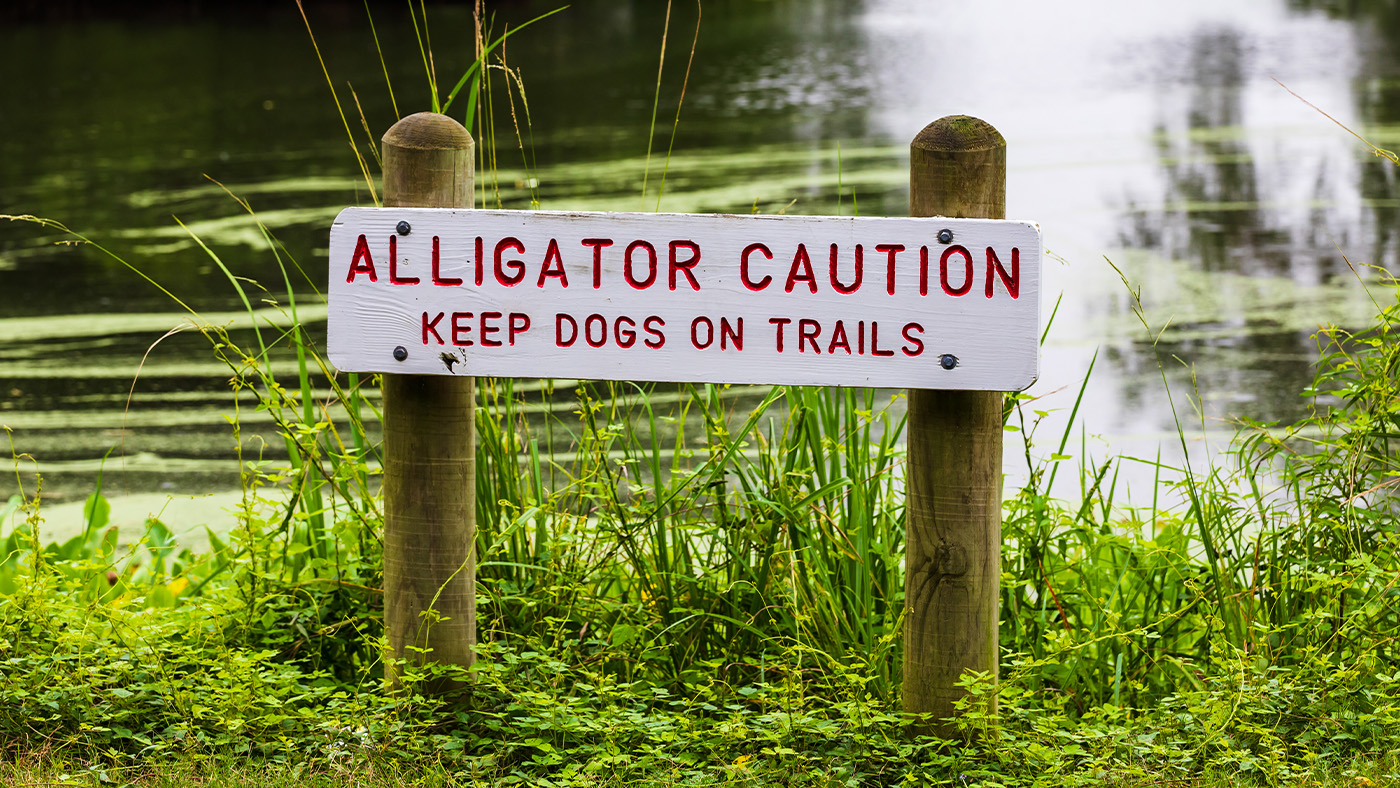Vet reveals how to stop your dog chewing their bed
Wondering how to stop your dog chewing their bed? An expert vet shares 5 simple things you can do to deter them.

When it comes to figuring out how to stop your dog chewing their bed, you’ll be relieved to hear that there are lots of things you can try to put an end to this destructive behavior – but first, you’ll want to see if you can get to the bottom of why they’re doing it in the first place.
If you’ve invested in the best dog bed only to find it’s already been ripped to shreds, it’s understandable that you might be feeling more than a little frustrated. But it turns out there are lots of reasons your canine companion may be doing this.
Puppies will often chew their bed to help relieve the pain and discomfort associated with teething, while anxiety in dogs or feelings of boredom may cause older pups to turn to chewing as a way to soothe and occupy themselves.
Below, Dr. Catherine Barnette explores the various reasons dogs chew their beds and outlines five simple things you can try to get them to stop. Plus, she explains how long you can expect it to take before these methods are effective and whether your pup chewing their bed poses any risks to their health.
How to stop your dog chewing their bed
1. Have plenty of toys on hand
The first step to prevent chewing, whether your dog is a puppy or an adult, is to ensure that your dog has plenty of appropriate chew toys (here’s our guide to be the best dog chew toys). Any time your dog must be left unsupervised, leave your dog with safe toys. Chew toys should be large enough and chew-resistant enough that your dog cannot break off pieces or swallow them.
A Kong toy filled with peanut butter is often an easy way to keep your dog engaged and entertained when they are home alone. Check out our guide to how to use Kong toys for more on this.
2. Give your dog plenty of exercise
Dogs that don’t receive adequate exercise may have pent-up energy, which they may release through destructive behaviors. Take your dog for several long walks each day, or play lengthy games of fetch at a park or in your backyard. Your goal should be to tire your dog out thoroughly, several times a day. If you're looking for inspiration, here are 32 ways to workout with your pet that will have you both feeling the burn!
3. Rule out a medical issue
If chewing is a new behavior in an older dog, rule out medical problems. Schedule an appointment with your vet for a physical exam and laboratory tests, to ensure that there are no underlying medical conditions that may be fueling your dog’s destructive behavior.
4. Invest in sturdy, chew-resistant bedding
Elevated dog beds are often a good option for dogs that like to chew, although they may be difficult to position in a crate. Some soft beds are designed with a cover that is intended to be chew-resistant; however, the efficacy of these chew-resistant covers can vary, depending upon your dog’s strength and determination! To help, we’ve put together a guide to the best dog beds for chewers.
K9 Ballistics Chew Proof Elevated Dog Bed | Amazon
With a solid metal frame that prevents vulnerable spots from chewing, this elevated bed is practically indestructible and comes with a 120-day chew proof warranty.
5. Use a deterrent
In some cases, all of the exercise and boredom-busters in the world will not stop a determined chewer. In that case, consider applying a deterrent to your dog’s bed that will make it less pleasant for chewing.
While there are a number of commercially-available products to deter chewing, such as Bitter Apple or Bitter Yuck, there are also recipes that you can prepare at home. Many dogs dislike spicy or bitter flavors, including citrus, and you can use these aversions to prepare at-home chew deterrents.
The following homemade chew deterrents use ingredients you may already have at home:
Grannick's Bitter Apple Taste Deterrent for Dogs | Amazon
The perfect spray to put a stop to chewing, this product is harmless to pups and won't leave a stain. Suitable for all dogs, including puppies.

- Citrus peel spray: Steep one cup of citrus peels in two cups of boiling water.
- Apple cider vinegar spray: Mix one part white vinegar with two parts apple cider vinegar.
- Lemon juice spray: Mix one part white vinegar with two parts lemon juice.
Spray a small amount of one of these sprays onto your dog’s bed to discourage chewing. Don’t get overzealous, because you don’t want your dog to avoid the bed completely; just spray a small amount around tempting surfaces to make the bed less tasty for your dog.
Although you may also find online recipes for cayenne pepper spray, it’s important to note that peppers can irritate your dog’s eyes and nose. Therefore, it’s best to avoid using this solution on a bed that your dog will need to sleep on.
Why do dogs like to chew on their bed?
1. Chewing in puppies
Chewing and other destructive behaviors are most common in puppies. In young puppies, chewing on a dog bed (or other object) is a natural extension of their tendency to explore everything with their mouth. It’s only natural that a puppy would want to explore that soft, fluffy bed that you purchased for them to lay on; unfortunately, they don’t realize they will destroy their bed in the process!
A teething puppy can also cause our young fur friends to want to bite down on anything they can get their mouth on as a way to alleviate some of the pain and discomfort they're experiencing. If you think this may be the cause, investing in a few of the best teething toys for puppies can provide them with an appropriate alternative to chewing their bed.
2. Chewing in adult dogs
Do dogs get bored? Absolutely! In fact, in adult dogs, chewing is often motivated by boredom or anxiety. If your dog is left home alone for hours at a time in a crate with little to do, it’s only natural that they would begin to “play” with their bed to entertain themselves. Ultimately, this play behavior may result in chewing. Additionally, some dogs chew their beds due to separation anxiety. In these dogs, chewing can be a nervous habit, similar to how some people bite their fingernails when stressed.
Less commonly, dogs chew due to an underlying medical issue. Hormonal imbalances, such as diabetes mellitus and Cushing’s disease, can result in an increased appetite and lead dogs to eat non-food items. If you notice a new onset of bed chewing in a middle-aged or older dog, schedule an appointment with your veterinarian to rule out underlying medical causes.
When do dogs stop chewing their beds?
If you are waiting for your puppy to grow out of chewing and other destructive behaviors, you may have a while to wait! Puppy teething lasts until about six months of age, meaning that their chewing may decrease at this point. However, in many puppies, chewing and destructive behaviors are motivated by playfulness, not teething. Unless you work to actively discourage chewing behaviors, these behaviors may continue until your puppy is one to two years old, or even well into adulthood.

What are the risks of your dog chewing the bed?
Many of us think of chewing primarily as an annoyance. After all, once your dog chews through their nice new dog bed, you need to go out and spend money to replace it! While that’s certainly true, there are also significant medical concerns to chewing up a dog bed or other non-food item.
If your dog swallows bedding, this material can become trapped in your dog’s stomach or intestines, causing an intestinal obstruction. If this occurs, your puppy will need surgery to remove the obstruction. Without surgery, an intestinal obstruction can be fatal.
While most dogs recover from this surgery uneventfully, complications can occur and it is not an easy surgery on your pup. If you don’t have good pet insurance, surgery can also be quite expensive. Therefore, it’s best to minimize the risk of foreign body ingestion whenever possible.
Dealing with your dog chewing their bed can be frustrating, but you can likely correct this behavior with some intentional effort. Focus your efforts first on increasing your dog’s activity levels and access to appropriate chew toys, providing alternatives to chewing on their bed. If that doesn’t work, deter chewing through the use of chew-resistant bedding or chew deterrents. Finally, don’t forget to rule out medical problems any time you notice a new onset of chewing in an older dog.
For more puppy training tips, read how to discipline a puppy.
PetsRadar Newsletter
Get the best advice, tips and top tech for your beloved Pets
Dr. Barnette is a graduate of the University of Florida, where she received both her B.S. in Zoology and her Doctor of Veterinary Medicine (DVM). She has 15 years of clinical experience as a small animal veterinarian, treating dogs, cats, and occasional exotic patients. She now works as a freelance veterinary writer, creating educational content for veterinarians, veterinary team members, and dedicated pet owners. Dr. Barnette lives in southwest Florida with her husband and daughter (plus two cats, a dog, and a rescued dove!) and enjoys kayaking, biking, and hiking. Learn more about Dr. Barnette at www.linkedin.com/in/catherinebarnette.
- Kathryn WilliamsFreelance writer



